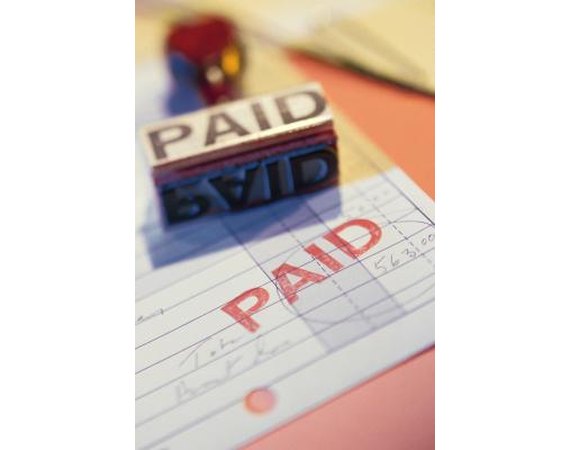
Nobody wants to end up in court, defending themselves from a debt collection lawsuit. If you lose the case, however, the creditor that filed the lawsuit receives a legal judgment from the court. Like a bankruptcy, tax lien or foreclosure, a judgment is a public record that appears on your credit report and has a detrimental effect on your credit scores. Depending on when the creditor received its judgment, paying off the debt could protect your credit from damage.
Paying a Judgment
In most cases, paying a judgment has no impact on your credit rating. The entry itself is inherently negative. Paying off the debt neither awards the judgment a positive status nor causes it to vanish from your credit history. While paying a judgment doesnt generally affect your credit scores, doing so protects you from such judgment enforcement methods as liens, property seizure and garnishment.
Docketed Judgment
The court does not consider a judgment final until it is docketed. The creditor dockets its judgment by filing a copy of the final judgment with the court clerk. Only then does the court add the judgment to your countys public record making it available to the credit bureaus which will then insert it into your credit file. If your creditor agrees not to docket its judgment against you, provided you pay off the debt, paying the judgment prevents it from ever appearing on your credit report. While this does not actively benefit your credit scores, it does protect them from further damage.
Considerations
If the creditor has already docketed its judgment against you, that does not mean that paying off the debt is not worthwhile. Even though paying the judgment does not help your credit scores, the fact that you paid off the debt shows up on your credit report whenever a lender reviews your history. Paid judgments reflect better on you than unpaid ones. All companies lending policies differ but some will require that you pay off your judgment before granting you a loan.
Time Frame
The degree to which a judgment, either paid or unpaid, affects your credit changes over time. Your credit scores serve as an indicator of your financial reliability. More recent items have a greater impact on your scores than older entries because they more accurately reflect your current responsibility level. Thus, as the judgment ages, it has less of a derogatory effect on your credit rating giving you the opportunity to rebuild your credit.







0 comments:
Post a Comment